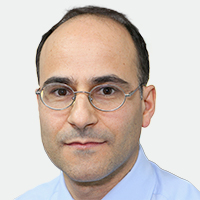Gene Therapy
The Gene Therapy Initiative (GTI) aims to develop curative therapies that address the underlying genetic abnormalities in NF1 patients.
View Funded Projects See GTI Advisory Board
Gene Therapy Initiative
NF1 results from mutations or deletion of the neurofibromin 1 (NF1) gene, which encodes a negative regulator of the Ras signal transduction pathway called neurofibromin.
To date, drug development has primarily focused on addressing the molecular abnormalities that arise downstream of the NF1 gene mutation/deletion rather than the gene itself. In its first phase, the Gene Therapy Initiative will explore the feasibility of various gene-targeting therapeutic strategies for NF1 as well as novel or enhanced in vivo gene delivery systems.
Areas of interest include:
- Gene replacement
- Gene editing
- RNA editing
- Exon skipping
- Mutation suppression
- Gene delivery systems
Funded Projects
GTI Advisory Board
 Barry Byrne, MD, PhDUniversity of Florida
Barry Byrne, MD, PhDUniversity of Florida Leah Byrne, PhDUniversity of Pittsburgh School of Medicine
Leah Byrne, PhDUniversity of Pittsburgh School of Medicine Jeffrey Chamberlain, PhDUniversity of Washington
Jeffrey Chamberlain, PhDUniversity of Washington Manuela Corti, PhDUniversity of Florida
Manuela Corti, PhDUniversity of Florida Kleopas Kleopa, MDCyrus Institute of Neurology and Genetics
Kleopas Kleopa, MDCyrus Institute of Neurology and Genetics Verena Staedtke, MD, PhDJohns Hopkins University School of Medicine
Verena Staedtke, MD, PhDJohns Hopkins University School of Medicine